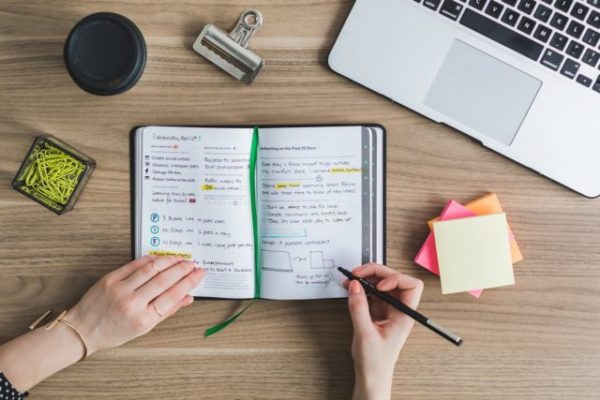One of the most important improvements many of you are probably hoping to make to your study skills is being able to do better on your tests. It may be tempting to simply tell yourself that if you study harder, or if you spend more time studying, you will do better, but nothing could be further from the truth. Yes, if you are doing poorly, you need to study harder, and yes, that will most likely involve committing more time to studying than you have been, but if you focus solely on what you need to study and the time you need to devote to it without also considering how you study and what improvements to the way you study you may need to make, your studying most likely will not pay off as much as you are hoping it will. Focusing on what you need to change about how and when you study will help you shift your mindset from studying for tests to preparing for them, and the more able you are to prepare for your tests, the more improvement in your grades you will see.
The first step toward becoming more prepared for your tests is to take stock of what you have been doing and see if anything is working. If you are doing better in some classes than in others, you may not need to make changes in every class. See if anything you are doing in one class can be applied to another. Maybe you have been applying better study methods to subjects you like and can consider trying them in subjects you don’t like. Maybe you are doing better in classes where teachers have assigned certain study methods and can consider using them in classes where teachers have not assigned them. Maybe you are putting more time into classes you like and need to find ways to increase the amount of time you spend on classes you don’t like. Whatever seems to be working, keep it up and find ways to build on it.
Once you have determined whether or not any of your study methods are working, take a hard look at the ones that aren’t and start to think about how you might change them. If you study simply by reading over your notes, pledging to read over your notes a few extra times before the next test probably won’t make much of a difference in the results you achieve. Instead, try to find ways to engage with your notes – cover them and try to rewrite or recite them, use them to make a study guide if one isn’t provided for you, find someone to quiz you, use provided online study materials or make your own – the list goes on and on. The more you can do with your notes besides simply reading over them, the more you will be able to turn studying for tests into preparing for them, and the more prepared you are, the better you will do.
The other important factor to consider when trying to make changes to your study habits is the factor of time. In order to truly prepare for your tests instead of simply studying for them, you need to make sure you are not doing what has long been known as cramming – studying as much information as you possibly can as close to the day of the test as you can get away with and expecting a good result. Instead, preparing for tests means planning ahead for them. The more information a test covers, the sooner you should start studying. While many teachers realize this and will announce the date of a test a week or more in advance so you will have enough time to prepare for it, I suggest you pay attention to other indicators that a test might be coming, such as the approaching end of a chapter in a content course or the assigned novel in English, an approaching holiday or end of a grading period, or any other pattern you see your teacher following regarding the time between tests, so you can begin to prepare before a test date is announced. That way, if you have a teacher who doesn’t give as much advanced notice as others do, you will still be prepared.
Once you plan to start studying ahead for your tests, make sure you study at least some of the information each day, using whatever methods you choose or are assigned, so that by the night before the test, you are simply reviewing the information you’ve already learned, not trying to cram it all in. This final review can also take place on the day of the test, as long as it does not detract from another class or anything you need to accomplish before test time. Just remember that your review periods may be short, and on the day of the test in particular, may not be long enough for you to go over all the information. If you have prepared well, this should not be cause for panic or alarm – rather, it should allow you to focus on what you most need to review, so you can walk into your classroom or sit in front of your computer at home ready to take your test, feeling confident that you have not just studied, but have actually prepared to do well.

